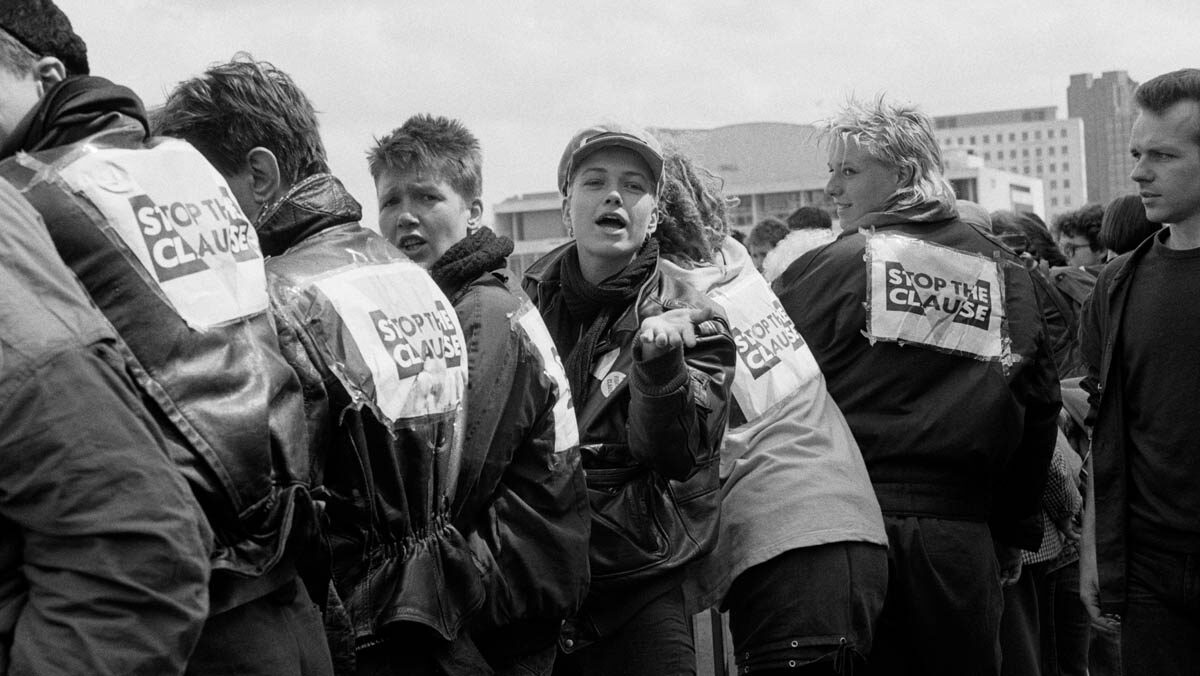
Birch’s scream is the collective response to injustice and inequality, a courageous voice to the oppressors. Tate Britain opens the Women in Revolt! Art and Activism in the UK 1970-1990 exhibition to honour and celebrate feminist art by over 100 female artists working in the UK in the 1970s and 1980s as a new wave of feminism. It is a tribute to angry and rebellious women artists, whose thoughts, provoking art, and rebellion strategies shaped, formed and contributed to British culture and feminism, and how their art provoked women’s liberation movement. The collection displays their art, from painting and photography to film and performance, from punk to post-punk. Their art was an agita and a revolution, including the opening of the first women’s refuge and the formation of the British Black Arts Movement.
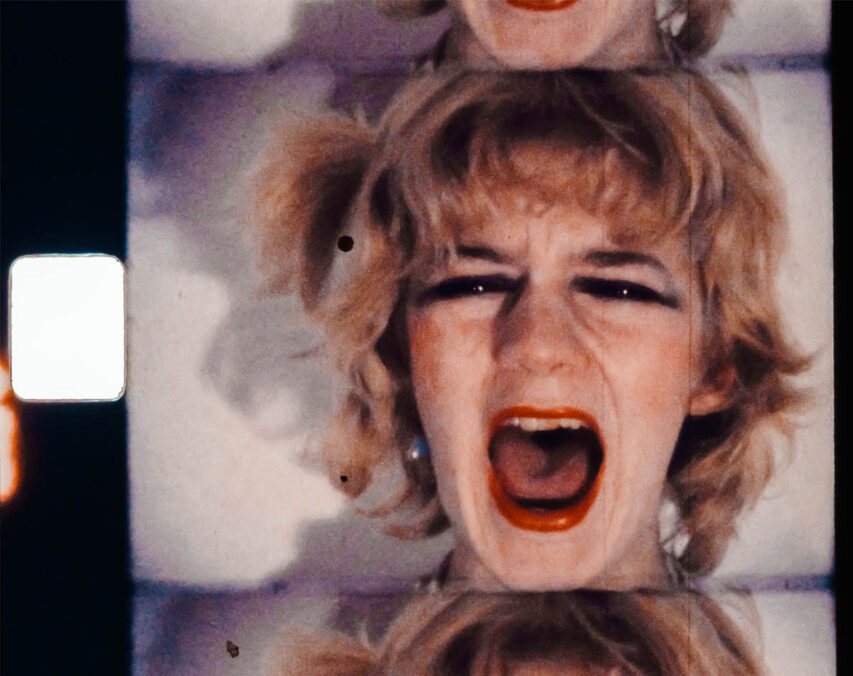
Gina Birch, still fromThree Minute Scream,1977. Courtesy the artist.
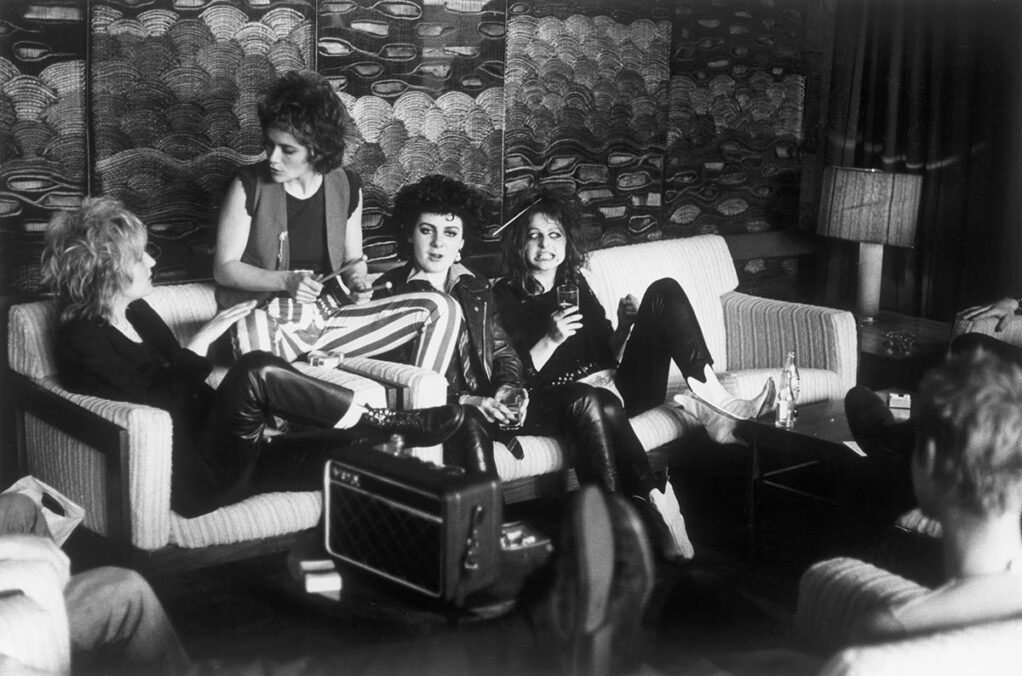
Caroline Coon, The Slits, Post House hotel, Cardiff, June 1977, 1977. Courtesy the artist and Stephen Friedman Gallery London and New York.
I went to see the exhibition over the weekend, suited up for the courtesy of the great female artists. When I entered the room full of posters on women’s liberation, shouting for justice, I could not help but feel the rage and revolt, hearing the endless scream of Gina Birch in the next room. The exhibition explores the association between art and the women’s movement in the 1970s, their art confessing their lives infiltrated with injustice, inequality, patriarchal society, and their constant struggle to achieve their rights. The artworks pivot around the concepts of motherhood, fertility, menstruation, and body – a revolt against reclaiming their agency over their bodies. All the women were activists, agitators, community leaders, and organisers partaking in various organisations to be heard and seen collectively.
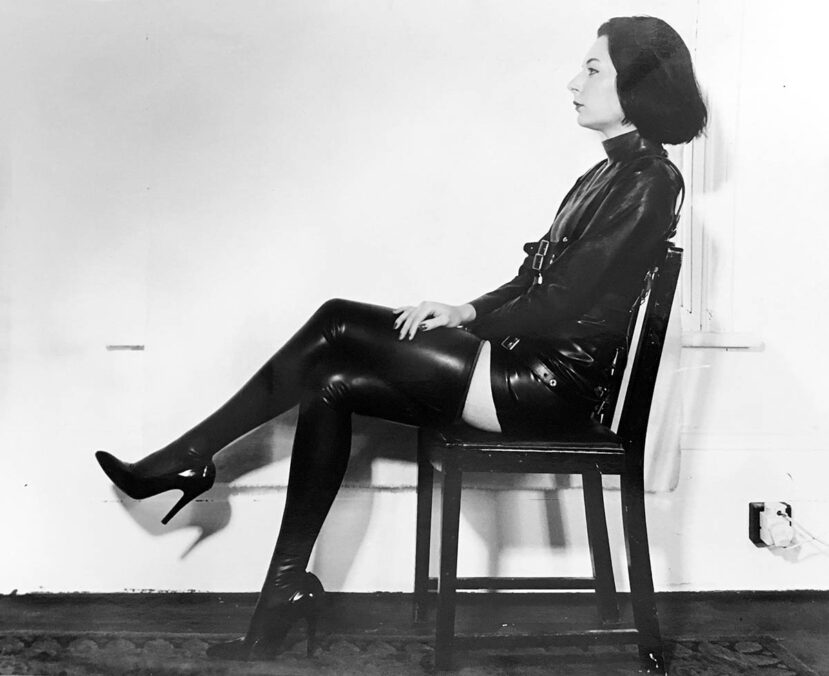
Jill Westwood, Potent-Female, 1983. Courtesy Dr Jill Westwood
The collection introduces artists such as Ross Finn-Kelcey and her work Divided Self (Speaker’s Corner) (1974), a photograph in which Finn-Kelcey appears twice, in conversation with herself on a benchmark in Hyde Park in London, exploring our two personas: the „sane“ self that we present to the world and the other as authentic and hidden. The photograph was very striking for me, as it made me realise how our sense of self has been constructed and formed to fulfil the demands of society. Rose English’s Study for a Divertissement: Jo and Porcelain sheet with breasts, yoni and coverlet with hands, as her first performance work to explore the idea of „feminine allure“, Catherine Elwes’s Menstruation I (1979) documents a performance exploring biological femininity as not a destiny.
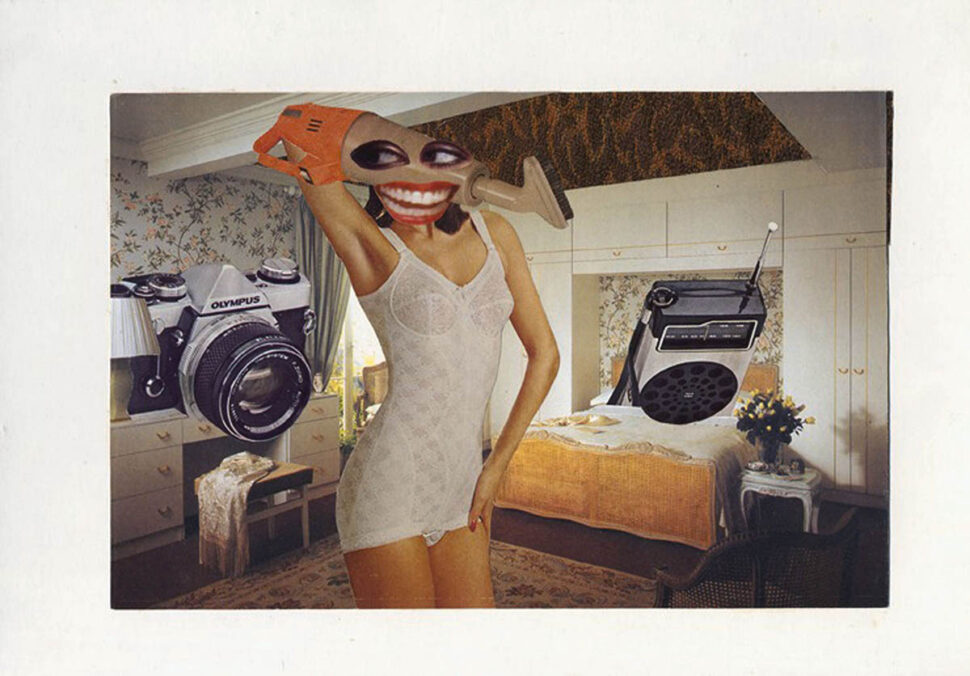
Linder, Untitled, 1977. Printed papers on paper,136 x 210 mm. Purchased 2007 by Tate

Alexis Hunter, The Marxist Wife Still Does The Housework
Courtesy of Richard Saltoun Gallery, London and Rome. All rights reserved, DACS 2023
Alexis Hunter’s The Marxist Wife (Still Does the Housework) (1978) is a sequential image series in which a woman uses a cloth to clean the portrait of Marx to indicate that „women workers are invisible“. The exhibition includes the works of The Neo Naturists, a performance art collective that appeared in public naked and with intricate body paint, following the Black feminists who were part of the British Black Artists Movement, founded in early 1980. Walking towards the end of the exhibition, feeling their revolt in every part of my body as a female, I felt the ultimate capacity to create, change and shape the world. The exhibition is very compelling and empowering: women are still in revolt, joining the scream of Gina Birch today, more powerful than ever, and I pay tribute to all of them with my own art, voice, and revolt.
Exhibition: Women in Revolt! Art and Activism in the UK 1970-1990, Tate Britain
Exhibition duration: Until 7 April 2024
Ecem Yucel (1995) is a PhD researcher and writer in London. She works on establishing metamodern aesthetics in contemporary fiction and explores the notions of self, identity and contemporary existence through writing, dancing, and acting. She created „Existential Manifesto“ as a manifesto, an improvisational project to collaborate with artists, researchers, and writers across the field to find a collective response to contemporary existence. Existential Manifesto is under construction to publish an essay collection, and Ecem aims to open a creative studio for artistic collaborations in the future. www.instagram.com/ecemmyucel, https://existentialmanifesto.com/, www.instagram.com/existentialmanifesto





